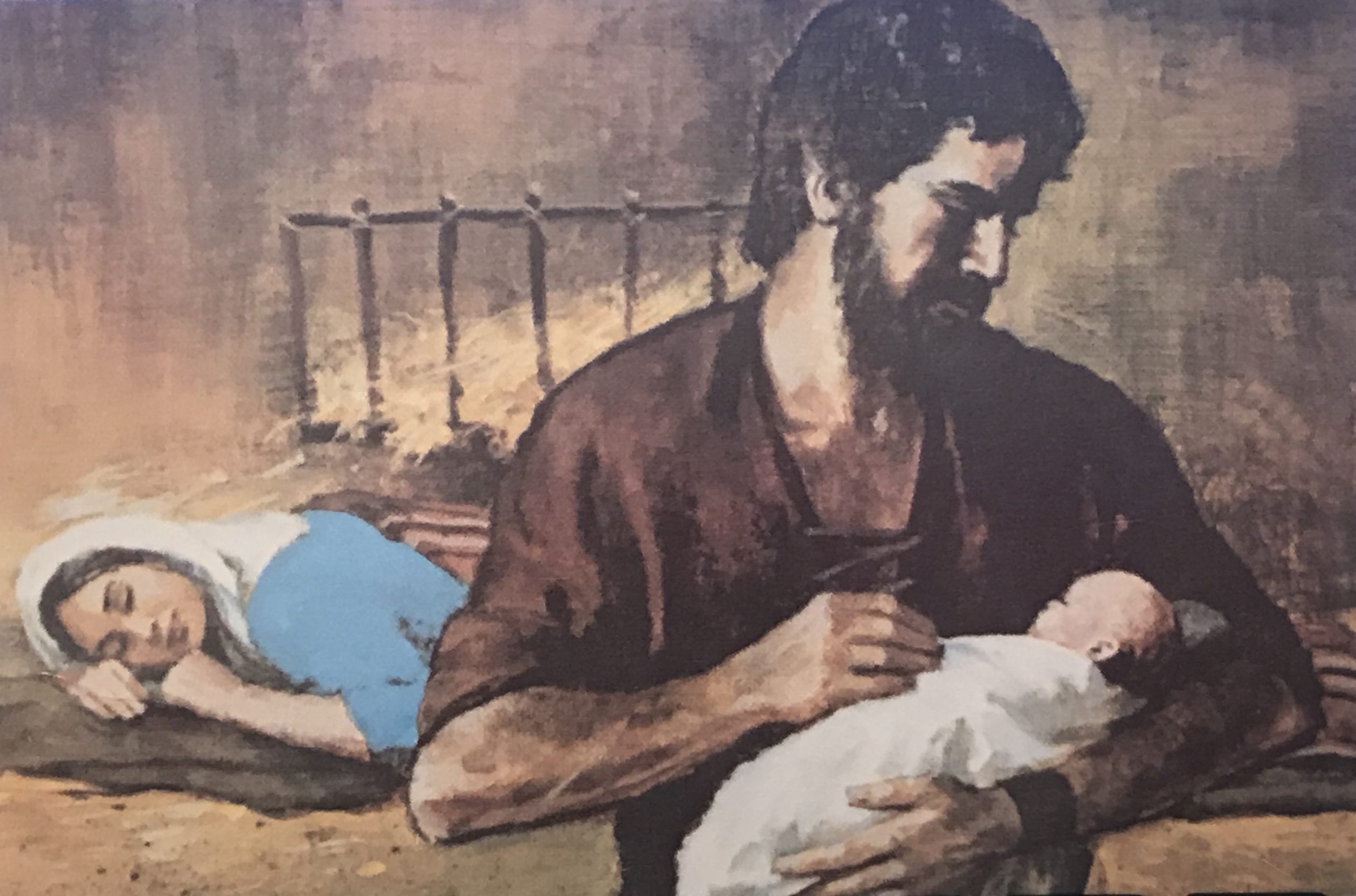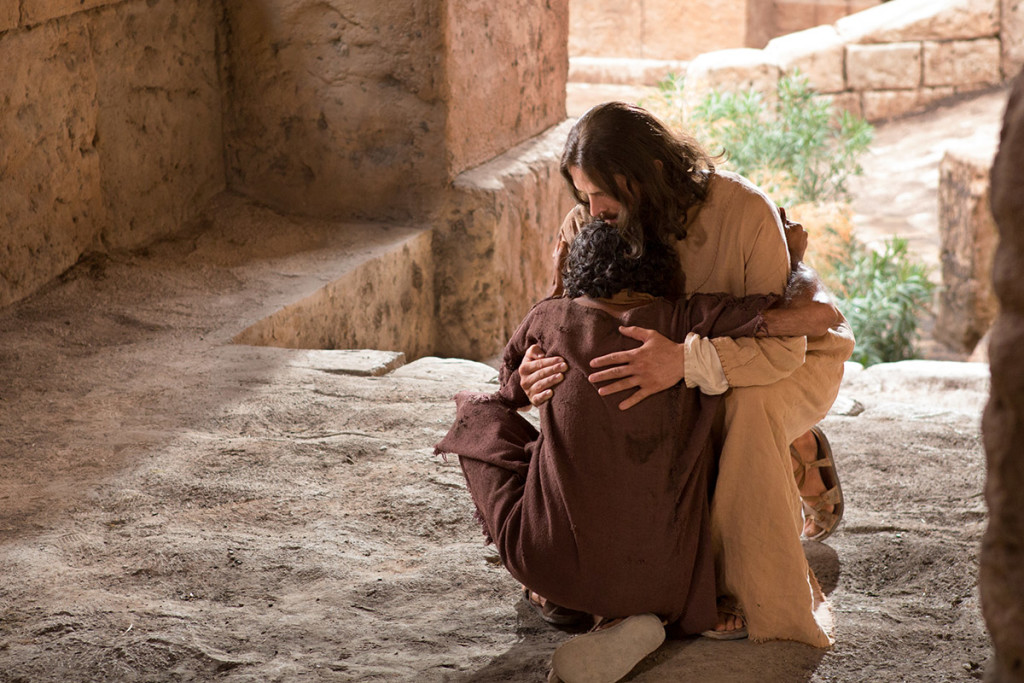Blessed Are The Meek
- Post author:LisaMarie McNally
- Post published:March 18, 2021
- Post category:Meditations
- Post comments:1 Comment
…for they shall inherit the earth. How many times have we read this passage and thought, “Well I am not going to be a doormat. Meekness is definitely not in my future.” We forget that words change over time and the modern definition, “overly submissive or compliant,” is vastly different than the original meaning when it was translated from Latin into English: “gentle, kind; humbly patient” (dictionary.com). We have beautiful examples of true meekness in both the Old and New Testaments: Moses and St. Joseph.
When we first meet Moses in the book of Exodus, he is living as the adopted son of Pharaoh’s daughter. He comes across an Egyptian beating a Hebrew slave and kills him. While he is defending the weak, he certainly did not choose the meekest response — but we are only at the beginning. When Pharaoh finds out, Moses flees to Midian and stays there, marrying Zipporah and tending her father’s flocks. The many years of quiet solitude with the Lord allow Moses to nurture his prayer life and transform his soul into the best version of himself. When God speaks to him from the burning bush, he is ready – after a little convincing.
Moses shows great courage and trust in God when he faces Pharaoh repeatedly and then leads the Israelites across the Red Sea. Through all the trials in the desert and the complaints of the wanderers, he is patient. When his father-in-law, Jethro, meets him in the desert (Ex 18), Moses is gracious and humbly listens to and follows his advice.
Time and again Moses demonstrates his compassion for his people. When the Israelites make a golden calf (Ex 32:7), God tells Moses that He will destroy them and make a new nation from Moses. Moses asks for mercy and God grants it. Numbers 12:3 tells us: “Now the man Moses was very meek, more than all men that were on the face of the earth,” yet, this does not stop his sister Miriam from putting him down and speaking against him. God afflicts her with leprosy for her arrogance and Moses, instead of gloating, chooses forgiveness and asks God to restore her. When they reach the Promised Land, the Israelites refuse to enter it because the current inhabitants look intimidating. They complain against Moses – I guess Miriam’s lesson was lost on them – and God tells Moses He will destroy them and make a new nation from Moses. Again, Moses asks for mercy and God grants it. Moses could take the easy way out, but chooses to rise above hurt feelings and anger.
St. Joseph also could have given in to his hurt feelings when he finds out Mary is pregnant. He could have had her stoned, yet he chooses to say nothing and divorce her quietly. Had he gone through with the divorce without stating a reason, the community would have turned against him; his reputation as an unjust man would have made his life extremely difficult, yet he chooses to be merciful to Mary. These are the actions of a man with exceptional courage and gentleness.
Time and again Joseph is visited in dreams by angels: take Mary as your wife, flee to Egypt, return to Judea. In each decision to obey there is suffering, yet the gentle Joseph remains steadfast. Traipsing through Bethlehem exhausted, famished, and parched, he perseveres until he finds shelter for Mary and Jesus. In the middle of the night he immediately takes his family to Egypt, displaying absolute trust and a willingness to endure any suffering to keep Jesus safe. This willingness to be self-sacrificing is the heroic virtue that saved the life of the Christ child.
St. Joseph has no recorded words in scripture but his actions speak volumes. He is a model of courage, strength, faithfulness, perseverance, mercy, and trust, but it is his gentleness that draws the Christ child to desire to be held in his arms. It is next to his gentle heart that Jesus sleeps in peace.
During the Year of St. Joseph, we can receive a plenary indulgence for our ourselves or someone who has died. See the Vatican website for more information.





